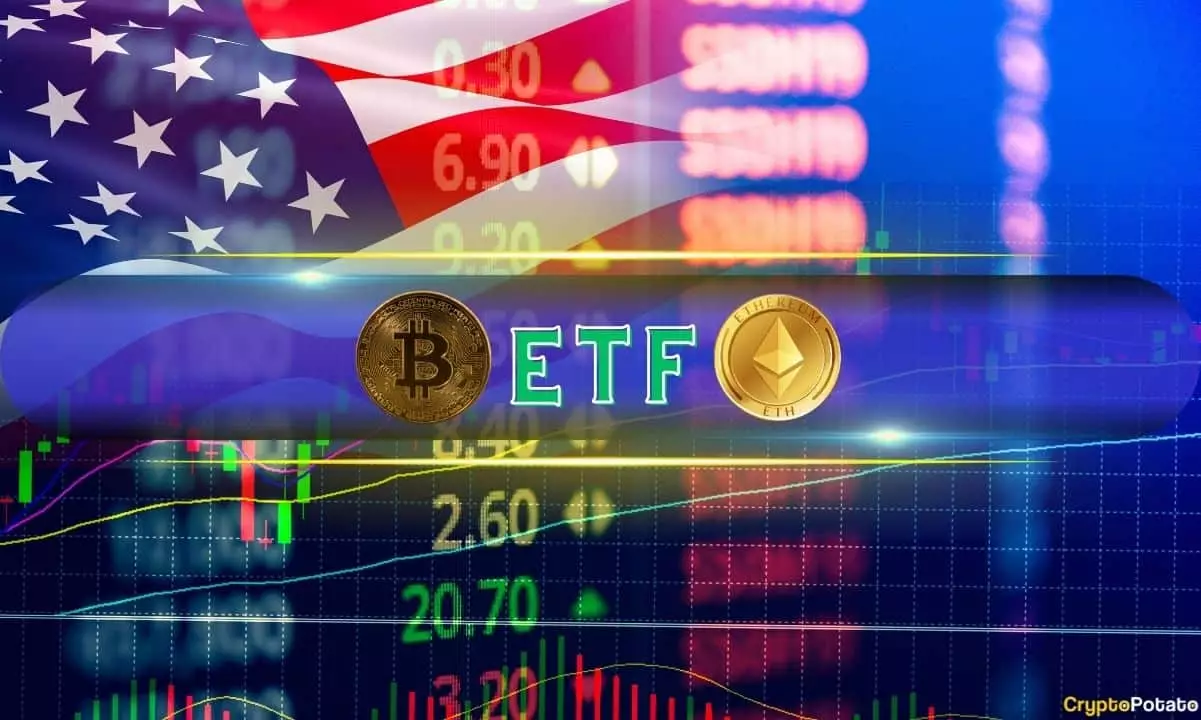As digital currencies gain traction and reshape the financial landscape, the burgeoning popularity of cryptocurrency-related exchange-traded funds (ETFs) is a testament to this transformation. In 2024 alone, these funds accounted for a staggering 40% of the top 50 performing ETFs, illustrating their appeal to investors amidst an ever-evolving market. The data reveals a significant uptick in interest toward digital assets, inviting a deeper examination of what this trend signifies for the investment sector.
Recent insights from ETF expert Nate Geraci indicated a noteworthy trend: of the 610 ETFs launched this year, 19 have emerged as direct players in the cryptocurrency arena, specifically associated with leading digital currencies such as Bitcoin and Ethereum or major holders like MicroStrategy. What is particularly striking is that 12 of these funds are among the top 20 performers, with cumulative inflows reaching billions. The landscape suggests that investors are increasingly inclined to use these instruments as gateways into the world of cryptocurrencies.
Leading the charge among these new offerings is BlackRock’s iShares Bitcoin Trust (IBIT), which saw unprecedented year-to-date inflows accumulating to an astounding $24.7 billion. This figure is compelling not merely for its volume, but also for the implications it has on the market’s validation of Bitcoin and the broader cryptocurrency ecosystem. Following closely are Fidelity’s Wise Origin Bitcoin Fund (FBTC) and the ARK 21Shares ARKB fund, which symbolize the rich competition amongst crypto ETFs and demonstrate the growing investor confidence in these assets.
The continued success of crypto-centric ETFs can be attributed to their unique positioning in diversified investment strategies. Investors view these funds as less risky alternatives compared to conventional cryptocurrency trading, given that they often come with the backing of institutional players. Notably, the entry of large financial firms, such as BlackRock and Fidelity, into the cryptocurrency space not only legitimizes these products but also provides a level of reassurance to reluctant investors.
Moreover, the regular trading associated with ETFs introduces a layer of liquidity often absent in the cryptocurrency market. By allowing easier entry and exit points, these funds can serve as an attractive option for both seasoned investors and newcomers who may wish to hedge their risks without directly holding the cryptocurrencies.
Beyond Bitcoin, an increasing number of investors are turning their attention to Ethereum, with the first Ethereum ETF on the list, BlackRock’s iShares Ethereum Trust (ETHA), capturing more than $1.4 billion in deposits since its launch in July. This trend reflects a broader acceptance of Ethereum in the mainstream investment community, with other ETH-based products also demonstrating solid performance. Collectively, these Ethereum-linked ETFs have pulled in over $2.8 billion, signaling ongoing investor interest and bolstering Ethereum’s role as a pivotal asset in the cryptocurrency domain.
Companies like MicroStrategy play a crucial role in paving the way for institutional investment in cryptocurrencies. As the largest corporate holder of Bitcoin, MicroStrategy’s substantial asset portfolio significantly influences the performance of ancillary funds tied to its holdings. ETFs like YieldMax MSTR Option Income Strategy and T-Rex 2X Long MSTR Daily Target ETF illustrate that corporate investments can foster confidence in related investment products, further complicating the traditional investment narrative.
As we venture further into 2024, the trajectory of cryptocurrency-related ETFs appears robust. Smaller ETFs, including the VanEck Bitcoin ETF and ProShares Ultra Bitcoin ETF, are gaining notable ground, showcasing that there is potential for vibrancy beyond the well-established giants. Their consistent performance and growing inflows are indicative of a more extensive market maturation process underway.
The emergence of cryptocurrency ETFs marks a significant paradigm shift in investment strategies. Their growing significance within the financial ecosystem speaks to a broader acceptance of digital currencies, and the evolution of how investors approach diversification and risk. As this sector continues to develop, it presents an exciting horizon filled with opportunities and challenges, urging investors to remain vigilant and informed. The journey of cryptocurrencies from a speculative excitement to a more stable investment vehicle is in full swing, and the future promises to be just as dynamic.

